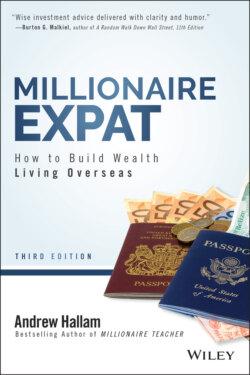Читать книгу Millionaire Expat - Andrew Hallam - Страница 32
Why Most Investors Underperform Their Funds
ОглавлениеIf you're countering your advisor's market‐beating claims with proof, he or she might start to panic. When the advisor's desperation peaks, you might hear this:
We use professional guidance to determine which economic sectors look most promising. With help from our professionals, we can beat a portfolio of index funds.
Colleges hire some of the brightest finance minds in the world to manage their endowment funds. They look at current trends, interest rates, corporate earnings and the economic landscape. But most of them lose to diversified portfolios of index funds. And those that win during one time period often lose the next. The publication, Pensions & Investments compiled 10‐year performances for 34 college endowment funds to June 30, 2020.19 However, these US fund managers could have saved a lot of effort if they bought Vanguard's Balanced Institutional Shares Index (60 percent stocks, 40 percent bonds). It beat 77 percent of American college endowment funds over the previous 10 years.
That's a small case sample. But researchers Sandeep Dahiya and David Yermack studied a larger case sample of 35,262 US non‐profit endowment funds. The researchers averaged their returns based on Internal Revenue Service filings from 2009–2018. On average, a balanced stock market index beat them by 3.97 percent per year.20
Armed with such knowledge, you should be able to fend off financial advisors selling inefficient investment products and saying that they (or their firm) can see the future (see Figure 3.1).
